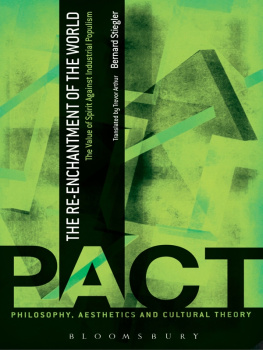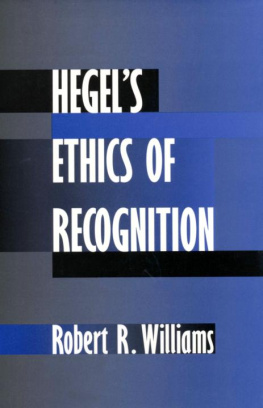Bernard Williams - Ethics and the Limits of Philosophy
Here you can read online Bernard Williams - Ethics and the Limits of Philosophy full text of the book (entire story) in english for free. Download pdf and epub, get meaning, cover and reviews about this ebook. City: London, year: 2011, publisher: Routledge, genre: Religion. Description of the work, (preface) as well as reviews are available. Best literature library LitArk.com created for fans of good reading and offers a wide selection of genres:
Romance novel
Science fiction
Adventure
Detective
Science
History
Home and family
Prose
Art
Politics
Computer
Non-fiction
Religion
Business
Children
Humor
Choose a favorite category and find really read worthwhile books. Enjoy immersion in the world of imagination, feel the emotions of the characters or learn something new for yourself, make an fascinating discovery.
- Book:Ethics and the Limits of Philosophy
- Author:
- Publisher:Routledge
- Genre:
- Year:2011
- City:London
- Rating:5 / 5
- Favourites:Add to favourites
- Your mark:
- 100
- 1
- 2
- 3
- 4
- 5
Ethics and the Limits of Philosophy: summary, description and annotation
We offer to read an annotation, description, summary or preface (depends on what the author of the book "Ethics and the Limits of Philosophy" wrote himself). If you haven't found the necessary information about the book — write in the comments, we will try to find it.
Ethics and the Limits of Philosophy — read online for free the complete book (whole text) full work
Below is the text of the book, divided by pages. System saving the place of the last page read, allows you to conveniently read the book "Ethics and the Limits of Philosophy" online for free, without having to search again every time where you left off. Put a bookmark, and you can go to the page where you finished reading at any time.
Font size:
Interval:
Bookmark:

Williamss discussions are much to be valued: his explicitness and argumentative ingenuity focus the issues more sharply, and at greater depth, than any comparable work I know... One of the most interesting contributions of recent years, not only to ethics but to philosophy.
John McDowell, Mind
This is a superior book, glittering with intelligence and style.
Thomas Nagel, Journal of Philosophy
Bernard Williams has a greater force of thought, deployed over a wider horizon, than anyone else I have ever listened to.
John Dunn, The Times Higher Education Supplement
Who has not askedif only when depressedHow should I live, and how can I fi nd out? To read this book is to be taken through one of the most sophisticated discussions available of such questions by an engaging, sceptical often wryly witty and extraordinary subtle professional.
Ronald de Sousa, New York Times Book Review
Remarkably lively and enjoyable... It is a very rich book, containing excellent descriptions of a variety of moral theories, and innumerable and often witty observations on topics encountered on the way.
Philippa Foot, Times Literary Supplement

Routledge Classics contains the very best of Routledge publishing over the past century or so, books that have, by popular consent, become established as classics in their field. Drawing on a fantastic heritage of innovative writing published by Routledge and its associated imprints, this series makes available in attractive, affordable form some of the most important works of modern times.
For a complete list of titles visit
www.routledge.com/classics
and a foreword by Jonathan Lear

For Jacob
| 1 |
| 2 |
| 3 |
| 4 |
| 5 |
| 6 |
| 7 |
| 8 |
| 9 |
| 10 |
Ethics and the Limits of Philosophy is a call to change how we do ethics. Philosophers, Bernard Williams argues, should stop propping up what he calls the morality systema punitive structure of obligation, blame and guiltsupported by the construction of ever more complex moral theories, theories of obligation, of just punishment and so on. Instead we should focus on the question: What would it be legitimately to live with confidence in our ethical lives? In the generation since its publication there has been a lively, sometimes brilliant, debatetaking issue with Williams characterization of objectivity in ethics, his defense of ethical relativism, his attempt to divide ethical concepts into thick and thin, his own need for such moral categories as right, obligation and justice. In short, Williams has been pushed on almost every major thesis. But there is near universal agreement that Ethics and the Limits of Philosophy sets the terms of the conversation. One cannot enter the contemporary world of ethical thinking without taking a stand on the issues Williams raises. The book has also had an unsettling effect on the academic study of ethics, challenging professors and students to reflect on the kind of activity they are engaged in; and to question what significance it has. I think one can honestly think of this book as a classic: if one wants to understand the movement of ethical thought in the twentieth century, one must read Ethics and the Limits of Philosophy.
In the early 1980s in Cambridge, I had the lifetime opportunity to teach a series of seminars on ethics jointly with Bernard Williams. These were the seminars in which he tried out the ideas that would later emerge in Ethics and the Limits of Philosophy and it was my job to challenge him when I could. With the benefit of hindsight, I wish I had pushed him more forcefully over his defense of the relativism of distance . This was Williams attempt to articulate a version of relativism that did not succumb to obvious objections and which, Williams thought, was true for ethics. A real confrontation between two divergent outlooks, he stipulates, occurs at a given time if there is a group of people for whom each of the outlooks is a real option. A real option for a group is an outlook they already inhabit or one they could go over to in their actual historical circumstances, while maintaining their hold on reality, avoiding self-deception, and so on. A relativistic outlook, Williams says, consists in the view that it is only with real confrontations that the language of appraisalgood, bad, right, wrong, and so oncan be applied to them. For Williams, we cannot legitimately render moral appraisal of that samurai, precisely because his way of life is not a real option for us. I have come to think this cannot be correct.
One problem is that real confrontations cannot be defined in terms of real options. One cannot, for example, understand the brutality with which dominant American culture (as well as European immigrants) overran and destroyed the ways of life of native peoplesunless one grasps that, for the dominant culture, there was no way the alternative outlook could be a real option for them. The brutality of the confrontation is explained in part because, for each side, the alternative outlook could only be notional. One of the cruel ironies of the situation was that for Sitting Bull, it would have been more of a real option to take on the life of a medieval samurai than to take on the life of General George Custer; yet for Custer, to ask him to take on the outlook of Sitting Bull would have been as unrealistic as his taking on the the life of the medieval samurai. It is not that these various forms of distance render moral evaluation beside the point; they are part of causal explanation of the atrocity.
Font size:
Interval:
Bookmark:
Similar books «Ethics and the Limits of Philosophy»
Look at similar books to Ethics and the Limits of Philosophy. We have selected literature similar in name and meaning in the hope of providing readers with more options to find new, interesting, not yet read works.
Discussion, reviews of the book Ethics and the Limits of Philosophy and just readers' own opinions. Leave your comments, write what you think about the work, its meaning or the main characters. Specify what exactly you liked and what you didn't like, and why you think so.













